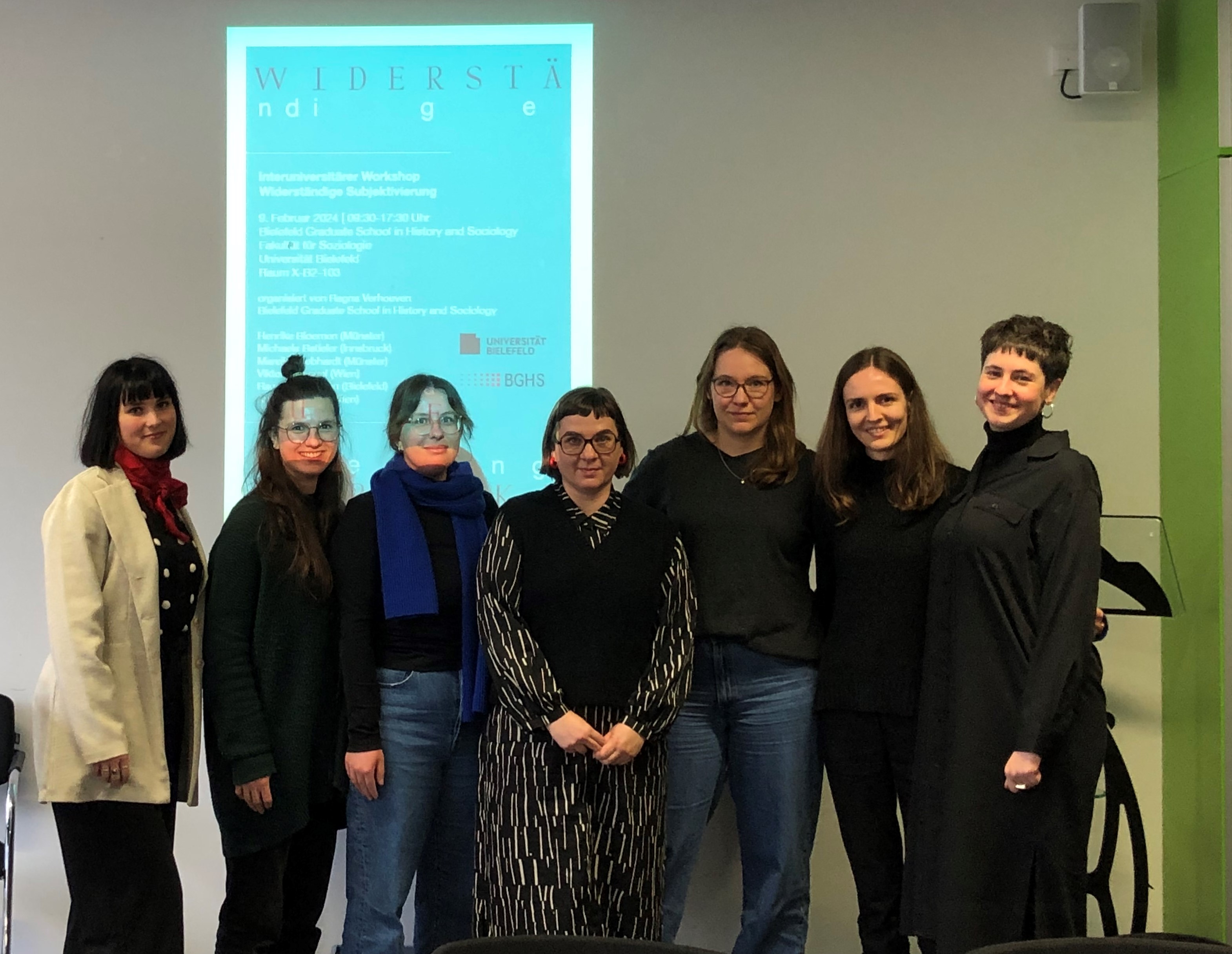BGHS.NEWS
Workshop “Resistant Subjectivation”
Workshop "Resistant Subjectivation"
On 9-10 February, BGHS member Ragna Verhoeven organized the international workshop "Resistant Subjectivation", which was funded by the BGHS and to which she had invited researchers from Germany and Austria. Together, they explored the extent to which resistance plays a decisive role in the process of subjectivation. Six speakers gave input presentations and thus stimulated the joint discussion.
Michaela Bstieler presents her research project, in which she is investigating figures of the uninhabitable: Worldlessness (Hannah Arendt), Abandonment (Emmanuel Lévinas), Disorientation (Frantz Fanon) and “Being Stopped” (Sara Ahmed). Using the methodological tools of political phenomenology, she approaches these various figures of the uninhabitable. She assumes that people are always residing; even in the camp, because there are everyday routines, or stories are told under the cover of night. As a result, there are "small revolutions" of resistance even in the supposedly most uninhabitable places.
Anna Weithaler is interested in democracy education from a radical democratic perspective and wonders to what extent this requires resistant, democratic subjects. Radical democracy theorists repeatedly use the formula of the political "from below", but it remains unclear what this "from below" means. She therefore suggests taking a closer look at representation. In other words, to what extent resistant subjects can be represented in the radical democratic sense, or represent themselves.
Ragna Verhoeven deals with the tension between conflictual and unifying elements in democracies. With the concept of the unifying, she develops a specific radical democratic concept that distinguishes itself from other democratic theoretical concepts of consensus or community. It particularly invites resistance, ruptures and critical questioning and thus enables productive reflection on resistance.
In her contribution, Henrike Bloemen emphasizes the permanence of resistance. She operates with Gramsci's concept of everyday mind, which she understands as a gendered mode of subjectivation. According to her, elements of resistance are hidden in the routines of everyday life and thus experience permanence. She looks at the "small resistances" that are consciously and unconsciously part of our everyday lives.
At the center of Viktoria Hügel's paper is the concept of "Body Politic". She directs her attention to the presence of bodies in (democratic) space. In this context, she looks at artistic and activist performances, such as "Eviction" by Omer Krieger. She discusses how body practices in artistic performances can be resistant.
Mareike Gebhardt brings together Black feminisms, radical democratic perspectives and migration research. She points out that the concept of the fugitive focuses on more extensive phenomena than the concept of migration, for example the escape from slavery. By telling stories of successful escapes, slaves undertake small, resistant escapes from their lives.

© Maria del Carmen Mayer
In exciting discussions, it became clear that the participants, although they research very different topics, share an interest in and understanding of resistance. In this shared understanding, resistance is constant and at the same time indicates a capacity for change and mutability. It includes relational as well as conflictual aspects. This means that the connections it creates do not have a homogenizing effect, but rather invite heterogeneity, differences and diversity. Resistance is a central component in the process of subjectivation, even if this happens in a hidden, supposedly invisible space in the sense of "small resistances".
This was the
second workshop in which the researchers discussed the concept of
subjectivation. And the work is to be continued.